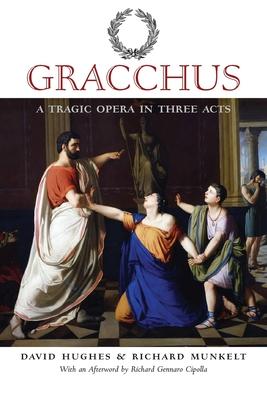Gracchus is a grand opera that tells of an unforgettable human drama set to soaring music. The whole unfolds according to the principles of the total work of art (Gesamtkunstwerk), incorporating perennial human themes while embracing music, poetry, dance, scenography, and philosophical reflection in a spectacle of emotional power whose purpose is to entertain and to edify. Besides the dialogue and lyrics, the libretto contains summary descriptions of the music for each scene giving the reader a substantive taste of the score. Though the plot has a historical basis being set in the late Roman Republic and centered on the life of Gaius Gracchus, a tribune of the people, the story uses that period to create a socio-political allegory of contemporary times. The text and score of Gracchus do not, finally, just combine but merge to produce a single aesthetic phenomenon inspired by the roots of opera, epic literature, and the dramatic tradition of classical tragedy.

Gracchus: A Tragic Opera in Three Acts
Gracchus is a grand opera that tells of an unforgettable human drama set to soaring music. The whole unfolds according to the principles of the total work of art (Gesamtkunstwerk), incorporating perennial human themes while embracing music, poetry, dance, scenography, and philosophical reflection in a spectacle of emotional power whose purpose is to entertain and to edify. Besides the dialogue and lyrics, the libretto contains summary descriptions of the music for each scene giving the reader a substantive taste of the score. Though the plot has a historical basis being set in the late Roman Republic and centered on the life of Gaius Gracchus, a tribune of the people, the story uses that period to create a socio-political allegory of contemporary times. The text and score of Gracchus do not, finally, just combine but merge to produce a single aesthetic phenomenon inspired by the roots of opera, epic literature, and the dramatic tradition of classical tragedy.